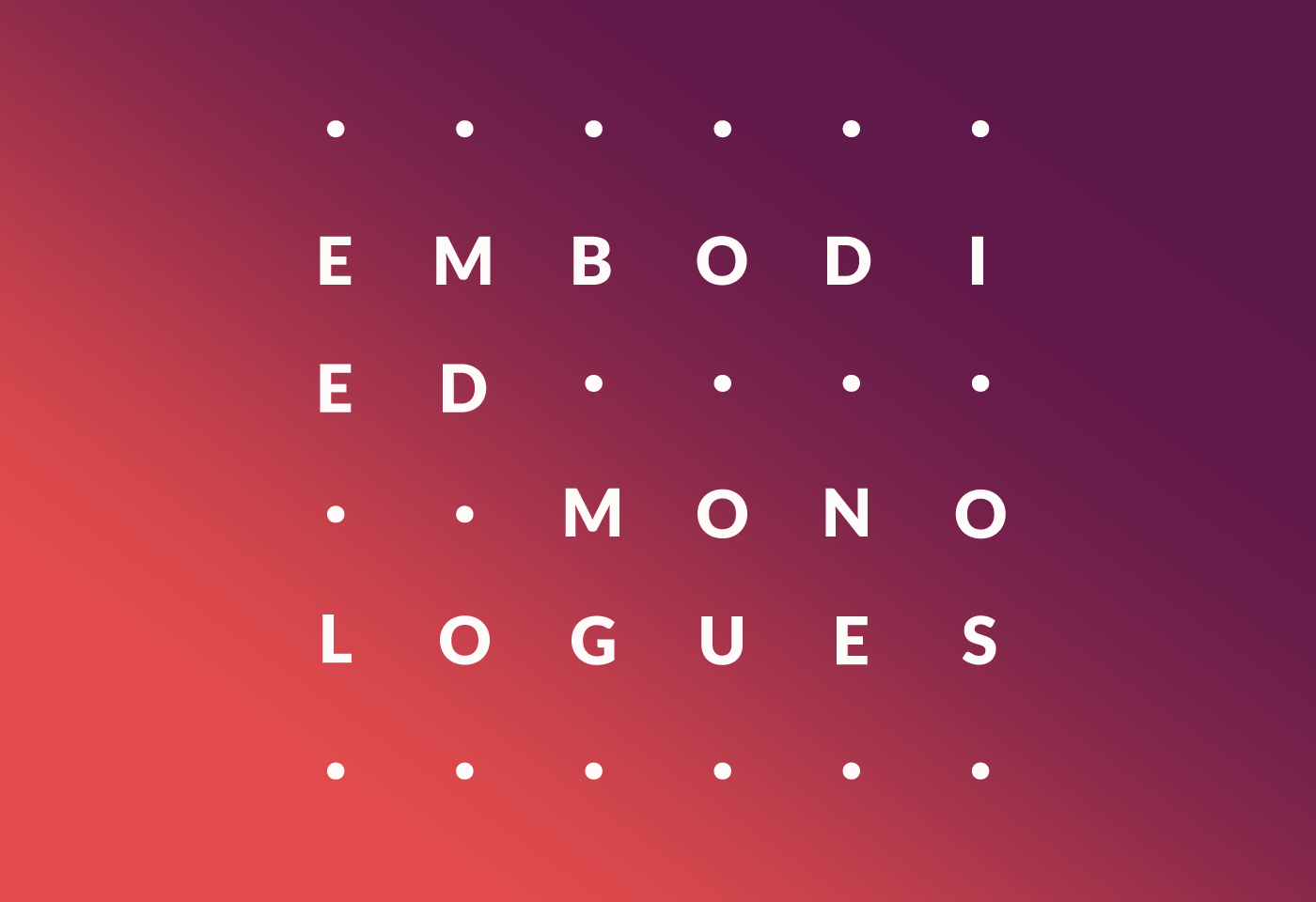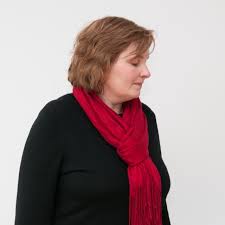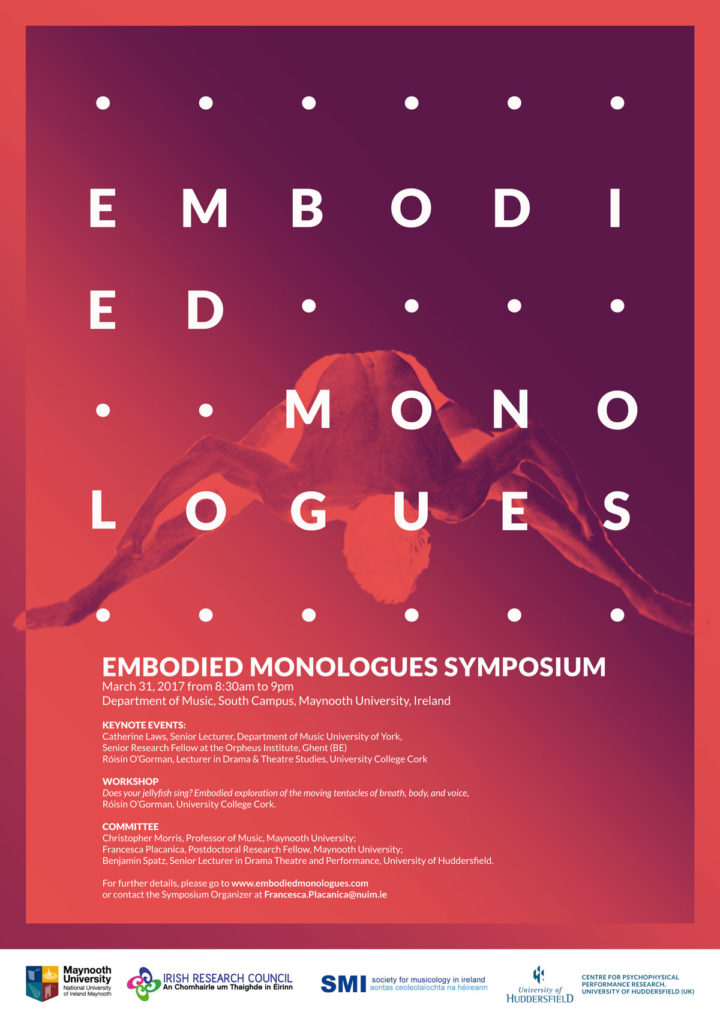Embodied Monologues Symposium

Department of Music and South Campus, Maynooth University, 31 March 2017
In recent years, the emergence of practice-based and performance-led research has generated knowledge derived from embodied practices, which have done much to expand the epistemic fields centred on the body and its place in philosophy and aesthetics. Until now, however, solo performance in performing arts, dance and music theatre has not been addressed as an independent field of inquiry, one that focuses on the embodied solo gesture from perspectives as diverse as psychoanalysis and anthropology. The Embodied Monologues one-day symposium, held at Maynooth University on 31 March 2017 within the framework of the Embodied Monologues Research Series, sought to generate responses to the idea of the ‘mono’ performance, and has identified a clear need for a space that could facilitate the interdisciplinary exchange about forms of solo performance across the arts.
The Call for Papers, issued in November 2016 to academic, performance and practice-led research and artistic platforms, invited individual papers, lecture recitals, research reports, posters, video-installations and specific sessions in any area of solo embodied or practice-led research. Despite the novelty of the theme of the symposium, the response of the academic and artistic community involved in this genre across disciplines has been overwhelming, with a number of proposal received that doubled the spaces available for presentation. In its final format (refer to conference booklet), Embodied Monologues has featured academic talks, lecture recitals and two main keynote events, offered by international presenters affiliated to higher education institutions engaged in practice-led and artistic research. In particular, participants hailed from universities based in the USA, Brazil, Israel, Norway, Sweden, The Netherlands, Italy, Ireland and the UK. While musicologists, theatre theorists, movement philosophers, composers, artist-researchers and performers presented their research during paper sessions (20’ each plus 10’ Q/A time), the lecture recital sessions (30’ each plus 10’ Q/A time) featured lecturers, practitioners and artist-researchers from dance, music and theatre backgrounds, who offered embodied examples of the practices and politics of solo performance through their performances and talks.
Contents and Highlights of the Day
We were able to fit ten academic papers and six lecture recitals in two parallel sessions, taking place respectively in Logic House and Riverstown Hall, South Campus, from 9:30 am to 19:30 pm throughout the day. The total number of international delegates was twenty-two, in addition to Maynooth University members of staff and students attending. The symposium was in fact introduced as part of the curricular activity of the Music Master’s course module MU635 “Aesthetics of Twentieth and Twenty-First Century Music” (coordinators: Prof Chris Morris, Dr Ryan Molloy) whose students were required to attend. In addition to that, multimedia posters and video sessions submitted by international presenters were shown over two coffee breaks in the Logic House foyer, where a rolling screen also showcased artistic research outputs produced at Maynooth University. The two plenary sessions led by two invited speakers held in Riverstown Hall were highlights of the day. In particular, in the morning, Dr Róisín O’Gorman from University College Cork led a keynote workshop on embodied notions of somatics and breathing that has allowed the interactive involvement of all delegates, both in the capacity of participants and observers. The workshop generated a sense of active engagement and community among the delegates, thus setting the tone for an extremely collaborative and open dialogue among the delegates.

The keynote lecture recital by Dr Catherine Laws from University of York and Orpheus Institute in Ghent concluded the proceedings of the symposium with the live performance of a piano monologue by composer Annea Lockwood, followed by an engaging theoretical talk on the themes of subjectivity and embodiment in solo performance. The final remarks of the day defined the Symposium as a milestone for the creation of an international interdisciplinary platform for the Embodied Monologues Research Network devoted to academic and artistic exchange among researchers and practitioners working on solo performance.



Comments